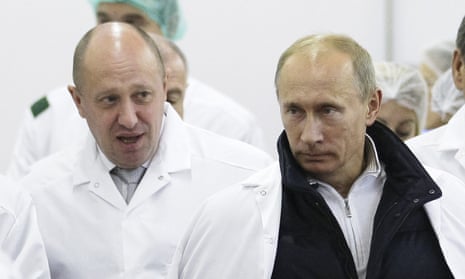Russian internet trolls based in an old arms factory in St Petersburg are targeting world leaders online and spreading support for Vladimir Putin’s invasion of Ukraine, the British government has said, citing research.
Online operatives were found to be ordering followers to target western media outlets and politicians, according to research funded by the UK government, which plans to share it with major online platforms and other governments.
The troll factory is suspected to be linked to Yevgeny Prigozhin, the founder of the Internet Research Agency accused of meddling in the 2016 election that saw Donald Trump win the presidency. The headquarters is allegedly located in rented space in St Petersburg’s Arsenal Machine-building Factory, a company that manufactures military equipment and technology.
The study details how the Russian president’s regime is trying to manipulate public opinion on social media, as well as in the comments sections of major media outlets.
Targets include the social media accounts of Boris Johnson, the British prime minister; the German chancellor, Olaf Scholz; and the EU foreign policy chief, Josep Borrell.
The research said TikTok influencers were being paid to amplify pro-Kremlin narratives. Operatives also amplified genuine messages by legitimate social media users that happen to be consistent with the Kremlin’s viewpoint – seemingly to evade social media platforms’ measures to combat disinformation.
The analysis suggests one main activity is “brigading”, to steer attention of discussion on social media and in comments sections of newspapers towards favoured opinions. Manipulation of polls in western media was also observed, including to skew the results of a survey on whether sanctions against Russia were supported.
Activities on Twitter and Facebook were detected, but were found to be particularly concentrated on Instagram, YouTube and TikTok. A key role in the network is said to be performed by a Telegram channel called “Cyber Front Z”, with the letter Z signifying Russian support for the war.
Social media accounts of bands and musicians including Daft Punk, David Guetta, Tiesto and Rammstein appear to have been targeted by the disinformation operation.
Researchers say the group seems to have learned from the tactics used by QAnon conspiracy theorists and from the Islamic State terror group.
The troll farm is said to recruit and hire salaried workers openly, justifying the work as “patriotic activity” in support of the “special military operation” in Ukraine.
The British foreign secretary, Liz Truss, said: “We cannot allow the Kremlin and its shady troll farms to invade our online spaces with their lies about Putin’s illegal war.
“The UK government has alerted international partners and will continue to work closely with allies and media platforms to undermine Russian information operations.”
The culture secretary, Nadine Dorries, said: “These are insidious attempts by Putin and his propaganda machine to deceive the world about the brutality he’s inflicting on the people of Ukraine.
“This evidence will help us to more effectively identify and remove Russian disinformation and follows our decisive action to block anyone from doing business with Kremlin-controlled outlets RT and Sputnik.”
The Foreign Office was not identifying the researchers behind the work amid concerns over their safety for conducting work critical of the Russian president’s regime.
With the Press Association
